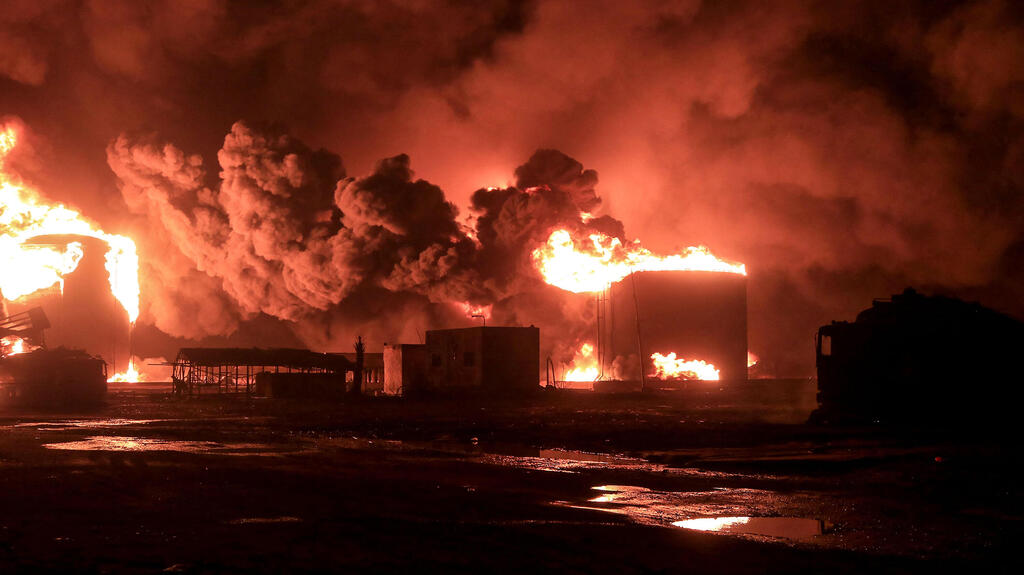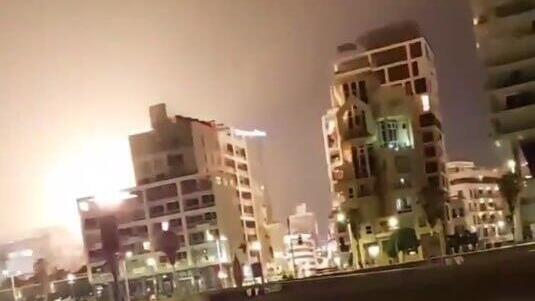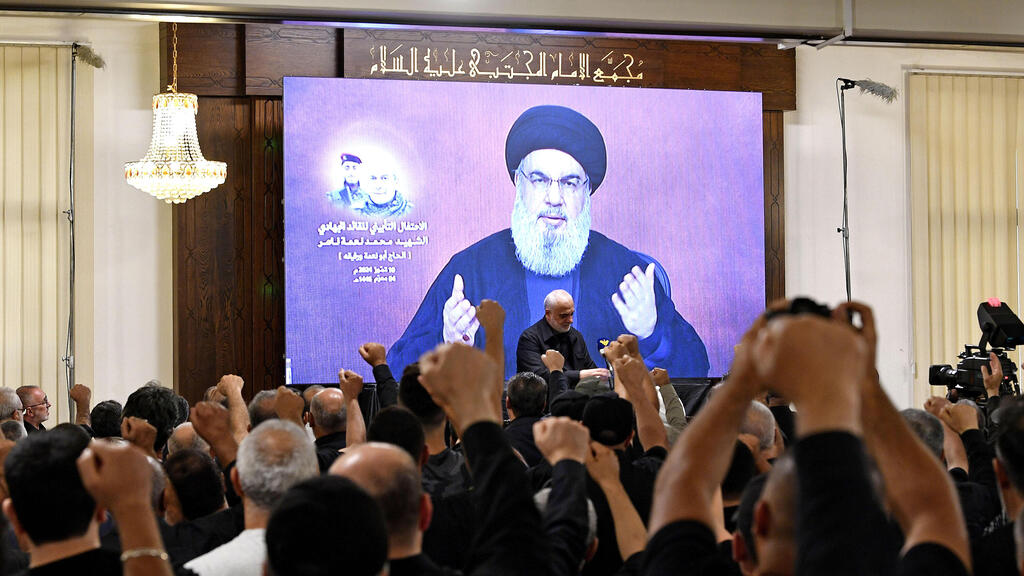Getting your Trinity Audio player ready...
Houthi spokesperson Mohamed Abdel Salam announced on Sunday that his rebel group would target deep inside Israel. "Opening a war with the Yemeni people will not be easy," he told Qatari-owned Al Jazeera. "The conflict with the Israeli enemy will be open, without boundaries or a commitment to rules of engagement."
The deadly drone attack in the heart of Tel Aviv marks what the Houthis describe as phase five—a new stage in the conflict. This is further underscored by the Houthi statement following the attack, declaring that "the Tel Aviv area is no longer safe."
Fires burn in Yemen after IAF strikes
The recent Israeli strikes in Yemen raise several questions: What will the Houthi response be? Where will it come from? Will the Houthis declare a "new phase of escalation," and what will that entail?
"This was an unexpected threat and had an effect on Israel," Abdel Salam said. "The threats will continue in Tel Aviv, and the new equation is clear evidence that anyone who defends the enemy fails. The Americans, the British, European nations and Arab agents will not succeed in preventing the threat from reaching Israel. We are pleased to have a direct battle against the Israeli enemy."
Immediately after Saturday's Israeli airstrike on Yemen, Houthi officials began threatening retaliation against Israel, with the threats continuing into the morning. Mohammed al-Bukhaiti, a member of the Houthis' Supreme Revolutionary Committee told Al-Arabi TV, "There are several critical and sensitive targets in Israel that we will strike. We will announce our actions once they are carried out."
The Houthis, armed by Iran, possess various types of drones, cruise missiles, and ballistic missiles, some of which have already been used against Israel. Military sources in Sana'a told the Lebanese Hezbollah-affiliated Al Akhbar that the drone used in the Tel Aviv attack is one of the weapons intended for what they describe as the fifth phase in the war and that the Houthi forces have "many military surprises." They warned that the Tel Aviv attack was "just the beginning of strikes beyond enemy lines."
The potential Houthi response could involve a coordinated attack with the Islamic Resistance in Iraq, an umbrella organization of pro-Iran militias that has claimed responsibility for joint attacks on Israeli soil. They claimed to have targeted Haifa and ships in the Mediterranean in recent weeks.
In June, the Houthis said they attacked four ships in the Haifa port in a joint operation with the Iraqi Shiite group, using drones. There was also a report in June of a joint operation against a "vital target in Ashdod."
A Houthi response may not necessarily emerge from Yemen. Iran's proxies might decide to join forces for a joint retaliation operation. A Yemeni source told Ynet that the Houthi response could take several forms, such as increased attacks on ships and expanded maritime threats. There might also be another attempt to strike the Tel Aviv area, but the source also suggested a unified response from the Houthis and other groups.
"In coordination with Hezbollah, the Islamic Resistance in Iraq and Hamas, there could be an attack against Israel from the entire axis," the source said. Hezbollah's Secretary-General Hassan Nasrallah has praised the Houthis in his recent speeches for their "commitment to Palestine."
The Lebanon-based terror group was also among the first to respond to Saturday's Israeli strike, offering condolences to the Yemeni people. In their statement, Hezbollah said it "stands with the Yemeni people in defending their sovereignty," adding: "We are confident that the Yemeni leadership can take the necessary steps to deter the enemy and its regional and international allies."
The Houthi response to the Hodeidah strike could range from massive or lesser-scale rocket fire at "sensitive targets" in Israel, such as Eilat, Haifa or Tel Aviv. However, they might also attempt to "challenge" by attacking new targets in their target bank.
The Houthis have a varied arsenal of missiles, some developed in-country with Iranian assistance and others directly supplied by Iran. They also have missiles seized from the Yemeni army when they took over territories in 2014.
During the war, the Arab media reported that the Houthi ballistic missile arsenal includes various Burkan missiles and their different versions, including the Burkan-3, reportedly capable of reaching over 1,000 km. It was also reported that the Houthis possess Hatim missiles, an Iranian missile version with a range of up to 1,450 km. The Saudi newspaper Asharq published in January that the arsenal includes Toophan missiles, with ranges between 1,950 km and 1,350 km—the longest range in the Houthi missile arsenal.
Regarding cruise missiles in the Houthi military arsenal, the Quds-1 Cruise Missile, with a range of 700-800 km, was previously mentioned, as well as the Sayyad cruise missiles, capable of reaching 800 km, and the Sejjil missiles, with a range of 180 km.
The Institute for National Security Studies (INSS) published that the Houthis are equipped with medium- and long-range ballistic missiles, cruise missiles, anti-ship missiles, attack and suicide drones and a fleet of UAVs.
"The Houthis have proven capabilities and operational skills with unmanned systems to carry out deadly attacks, as demonstrated by the strikes on oil facilities in Saudi Arabia and Abu Dhabi," the report said.









